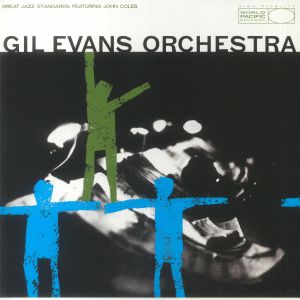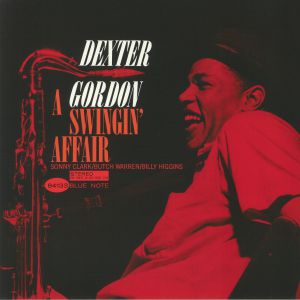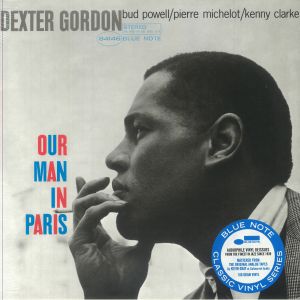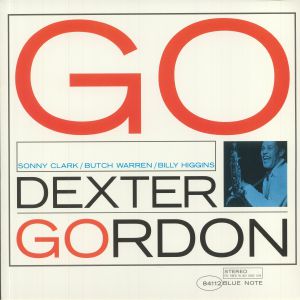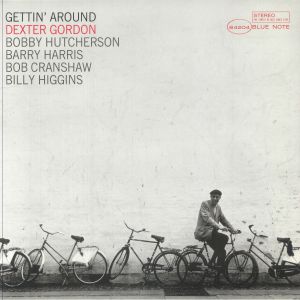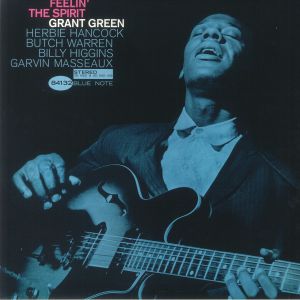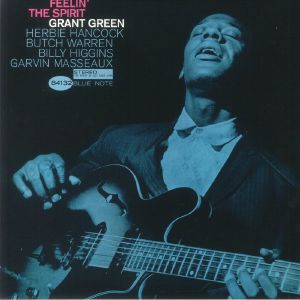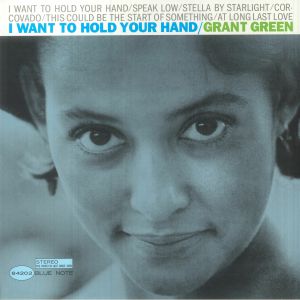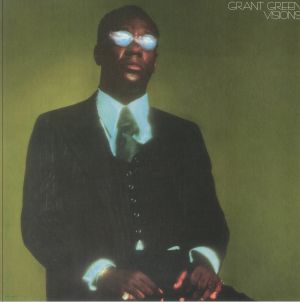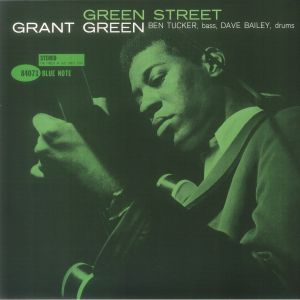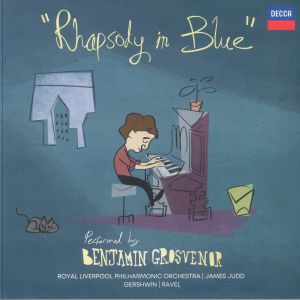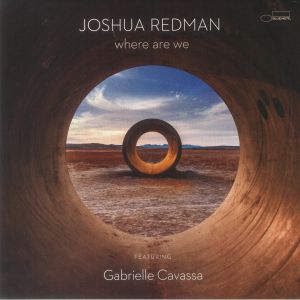Filter
Genre
Stock
Type
Music
Format
Artist
Label
Featured
Release Title
Price
Back catalogue: All genres
Juno's full catalogue of All genres
Álbumes
Great Jazz Standards (Tone Poet Series) (180 gram audiophile vinyl LP)
Cat: 385683 6. Rel: 04 May 23
Jazz
Review: Arranger, composer and pianist Gil Evans worked with Miles Davis on two notable albums - Miles Ahead and The Birth of Cool - and also made a fine debut of his own in 1958. A year later he got back in the studio to work on Great Jazz Standards which saw him work with two different ensembles including talents like trumpeter Johnny Coles, soprano saxophonist Steve Lacy and clarinetist Budd Johnson amongst more. It is a superb look at some great jazz gems from Bix Beiderbecke's 'Davenport Blues' to a shimmering version of Thelonious Monk's 'Straight No Chaser.' It gets the full remastering treatment for this reissue.
… Read moreIntérprete: Juno Recommends Jazz
in stock $33.58
Review: Two days after he laid down his most celebrated album, "Go!", saxophonist Dexter Gordon gathered together the same line-up of musicians - Sonny Clark on piano, Butch Warren on bass and Billy Higgins on drums - and recorded a follow-up. Initially released in 1962, "A Swingin' Affair" has long been considered a hard-bop classic - hence this fresh reissue from Blue Note. It certainly contains some of Gordon's best work, not least the sparkling opener "Soy Califa", the languid and smoky niceness of "You Stepped Out Of A Dream" and the bluesy, bittersweet brilliance of slow-motion classic "Until The Real Thing Comes Along".
… Read moreIntérprete: Juno Recommends Jazz
in stock $22.29
Our Man In Paris (Classic Vinyl Series) (180 gram audiophile vinyl LP)
Cat: 651496 7. Rel: 20 Feb 25
Jazz
Review: Super cool jazz cat Dexter Gordon's 1963 album Our Man in Paris marked his first release from Europe and is often regarded as the final bebop album. The saxophonist gathered a quartet featuring bebop legends Bud Powell on piano and Kenny Clarke on drums and they played alongside French bassist Pierre Michelot to record this timeless work at CBS Studios in Paris. The album is defined by Gordon's commanding saxophone with the intricate rhythms of bebop that take you right back to a precise moment of musical history which marked a significant transition in jazz. It remained a defining work in Gordon's career.
… Read moreIntérprete: Juno Recommends Jazz
in stock $31.60
Review: American jazz tenor saxophonist Dexter Gordon was one of the most influential early bebop musicians alongside the likes of Dizzy Gillespie and Charlie Parker. His 1962 album Go on Blue Note was not actually recorded in a club, but in a fashion in the studio that replicated that informal environment. The legendary Rudy Van Gelder oversaw proceedings at his Van Gelder Studio and had Sonny Clark on piano, Butch Warren on Bass and Billy Higgins on drums. Next to tunes Dexter wrote himself are covers of Cole Porter's 'Love For Sale' amongst other highlights.
… Read more in stock $24.56
Gettin' Around (Classic Vinyl Series) (180 gram audiophile vinyl LP)
Cat: 651036 8. Rel: 14 Nov 24
Jazz
Review: Dexter Gordon's 1965 album Gettin' Around captures the essence of his refined, effortless saxophone playing, coming at a time when he was back in the States after a long stint in Europe. The vibe here is smooth and unhurried, with Gordon's tenor sax at the centre of it all, surrounded by a standout crew: vibraphonist Bobby Hutcherson, pianist Barry Harris, bassist Bob Cranshaw, and drummer Billy Higgins. This unique instrumentation really shines, especially with the interplay between Gordon and Hutcherson on tracks like 'Manha De Carnival' and 'Shiny Stockings.' The whole session feels relaxed yet precise, with Gordon letting his sax sing while the band provides subtle yet nuanced backing. Highlights include the gentle swing of 'Everybody's Somebody's Fool' and the more upbeat 'Le Coiffeur,' both showcasing the group's tight but easy-going chemistry. Reissued as part of the Blue Note Classic Vinyl Series, this edition stays true to its analogue roots, mastered by Kevin Gray from the original tapes and pressed on heavyweight 180g vinyl. For fans of Gordon or classic Blue Note, it's a must-have.
… Read moreIntérprete: Juno Recommends Jazz
in stock $32.45
Feelin' The Spirit (Tone Poet Series) (remastered) (limited gatefold 180 gram audiophile vinyl LP)
Cat: B 003348801. Rel: 06 Oct 22
Jazz
Review: Blue Note's Tone Poets series is all about celebrating some of the greatest jazz guitarists, reissuing their seminal albums as a nod to virtuoso talent. Grant Green's 1963 album Feelin' The Spirit consisted of jazz arrangements of traditional African American spirituals such as 'Nobody Knows The Trouble I've Seen' and 'Sometimes I Feel Like A Motherless Child'. Given the historical weight of the music, it's no surprise to hear Green soaring high as he expresses the songs through his guitar, but as if that wasn't enough he's backed up by Herbie Hancock on piano, Butch Warren on bass and Billy Higgins on drums.
… Read moreIntérprete: Charlie bucket/ dancing in space
in stock $43.18
Feelin' The Spirit (Tone Poet Series) (remastered) (B-STOCK) (limited gatefold 180 gram audiophile vinyl LP)
Cat: B 003348801 (B-STOCK). Rel: 01 Jan 90
Jazz
B-STOCK: Sleeve split at the top but otherwise in excellent condition
Review: ***B-STOCK: Sleeve split at the top but otherwise in excellent condition***
Blue Note's Tone Poets series is all about celebrating some of the greatest jazz guitarists, reissuing their seminal albums as a nod to virtuoso talent. Grant Green's 1963 album Feelin' The Spirit consisted of jazz arrangements of traditional African American spirituals such as 'Nobody Knows The Trouble I've Seen' and 'Sometimes I Feel Like A Motherless Child'. Given the historical weight of the music, it's no surprise to hear Green soaring high as he expresses the songs through his guitar, but as if that wasn't enough he's backed up by Herbie Hancock on piano, Butch Warren on bass and Billy Higgins on drums.
… Read moreBlue Note's Tone Poets series is all about celebrating some of the greatest jazz guitarists, reissuing their seminal albums as a nod to virtuoso talent. Grant Green's 1963 album Feelin' The Spirit consisted of jazz arrangements of traditional African American spirituals such as 'Nobody Knows The Trouble I've Seen' and 'Sometimes I Feel Like A Motherless Child'. Given the historical weight of the music, it's no surprise to hear Green soaring high as he expresses the songs through his guitar, but as if that wasn't enough he's backed up by Herbie Hancock on piano, Butch Warren on bass and Billy Higgins on drums.
in stock $34.54
I Want To Hold Your Hand (Tone Poet Series) (gatefold 180 gram audiophile vinyl LP)
Cat: 450926 0. Rel: 30 Nov 23
Jazz
Review: It’s not often you hear titans of the golden era of Blue Note tackling the relative stricture of pop, but that’s what Grant Green did on his 1965 album I Want To Hold Your Hand. As you might well expect, the seminal jazz guitarist lead with a rendition of The Beatles classic, creating a bold abstraction of the original backed up by Hank Mobley on tenor sax, Larry Young on organ and Elvin Jones on drums. Along with the other slightly less familiar songs from the 40s and 50s, Green holds court and channels vocal lyricism into incredibly expressive guitar playing on this standout set from the accomplished peak of his career.
… Read more in stock $44.87
Review: Grant Green's Visions, released in 1971, dives into r&b and jazz-funk with an all-star lineup including Billy Wooten, Chuck Rainey, and Idris Muhammad. Green's signature tone and melodic style transform tracks from The Jackson 5, Chicago, The Carpenters, Mozart, and Quincy Jones' 'Maybe Tomorrow,' later sampled by Kendrick Lamar. This Blue Note Classic Vinyl Edition captures the original stereo mix, mastered by Kevin Gray from analog tapes, pressed on 180g vinyl at Optimalia soulful essential for collectors and fans of jazz-funk's golden era.
… Read more in stock $31.33
Review: So it is for most jazz stalwarts, Grant Green's home for the majority of his career was Blue Note Records, who now reissue his self-titled debut LP Green Street. His sophomore LP after the big splash that was his debut, Grant's First Stand, in 1961, this one went on to cement the esteemed jazz guitarist's repertoire as a musician not to be trifled with, thanks to its demonstrable live synergy with Ben Tucker on bass and Dave Bailey on drums. Verifiably Green - in stark contrast to jazz's usual blue.
… Read more in stock $31.33
Benjamin GROSVENOR / VARIOUS
Rhapsody In Blue (100th Anniversary Edition) (limited translucent blue vinyl LP)
Cat: 485493 0. Rel: 25 Apr 24
Jazz
Review: Benjamin Grosvenor's latest release, the second installment in his Decca contract, showcases his exceptional talent in works for piano and orchestra. Teaming up with the Royal Liverpool Philharmonic under James Judd's baton, Grosvenor delivers captivating interpretations of Saint-Saens' Second Piano Concerto, Ravel's G Major Concerto, and Gershwin's iconic Rhapsody in Blue. While the combined choice of repertoire might seem unconventional, Grosvenor's artistry shines through, effortlessly transitioning between the diverse styles of each composer. His refined yet impassioned playing captivates listeners, whether navigating the lyrical passages of Ravel's concerto or infusing Gershwin's jazz-infused melodies with infectious vitality. The accompanying solo 'encores' further showcase Grosvenor's virtuosity, with standout performances of Saint-Saens' 'The Swan,' Ravel's Prelude in A Minor', and Gershwin's 'Love Walked In.' Each piece is delivered with exquisite precision and sensitivity, demonstrating Grosvenor's mastery across a range of repertoire.
… Read more in stock $34.71
Review: A wonderfully warm and heartrending new jazz opus from Joshua Redman - Where We Are adds to Blue Note's legacy as standing for "The Finest In Jazz". Over the past three decades, the saxophonist, composer, and bandleader has consistently demonstrated how to honor the music's verities while expanding its reach in contemporary settings. On where are we, Redman's first recording as a Blue Note artist, he delivers one of his most compelling albums to date, in a program featuring typically brilliant supporting partners and (in a first for Redman) built around a dynamic vocalist, Gabrielle Cavassa. With incisive attention to detail and impeccable recordings, this is not one to let pass by.
… Read more in stock $39.49

 USD
USD






